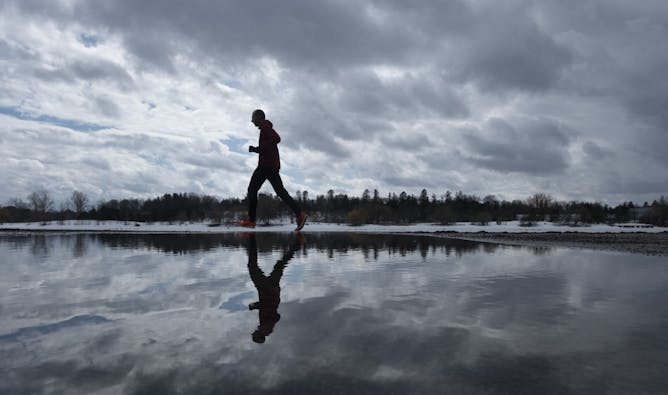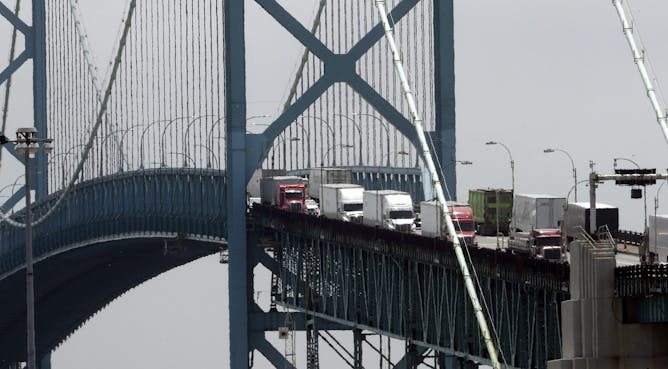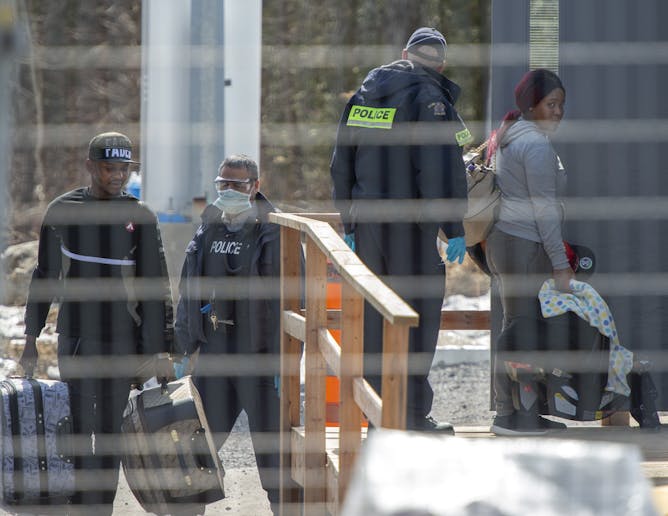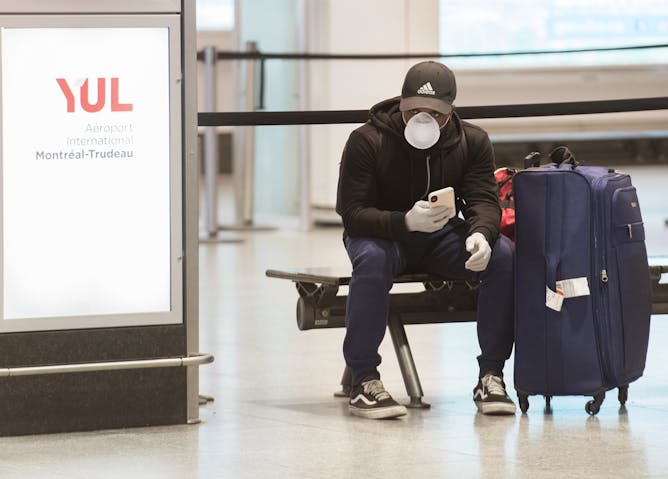|
|
|
During coronavirus hospital surge, a midwife recommends home birth
|
|
Today in The Conversation Canada, Manavi Handa, a Ryerson University professor — and midwife of 20 years — urges healthy pregnant people to plan for home births.
Stepping into a hospital during a pandemic could expose your newborn not just to COVID-19 but also other complications generally not seen in home births, she writes. Her experience during SARS, as well as years of clinical evidence, “demonstrate the safety of home births for healthy people who have a trained midwife.” Handa also talks about additional services midwives could be called upon to perform during the pandemic: “We can stitch and prescribe, like a physician, but also start an IV and take blood, like a nurse. There are many things we can use our skills for beyond birthing.”
Also today:
Enjoy and stay safe.
|
Vinita Srivastava
Director of Journalism Innovation | Senior Editor, Culture + Society
|

|
|
Top story
|

A woman holds her newborn son right after giving birth; they are still in the birthing pool after labour at home.
(Shutterstock)
Manavi Handa, Ryerson University
During a pandemic, a home birth starts looking better every second. Midwives with their specialized skills in low-risk normal birth can be of great service.
|

Stress about the coronavirus pandemic can actually increase your risk of infection, but exercise can alleviate the immune system’s stress response. Above, a lone jogger in Ottawa, on March 17, 2020.
THE CANADIAN PRESS/Adrian Wyld
Jennifer J. Heisz, McMaster University
The immune system can respond to stress in ways that harm health. But there's a stress-buster that can help keep you calm and healthy: exercise.
|

The Canada-U.S. border will be closed to most people because of the coronavirus, but trucks will still be able to make the trip over crossings like the Ambassador Bridge between Detroit and Windsor, Ont.
(AP Photo/Paul Sancya)
William Anderson, University of Windsor; Marta Leardi-Anderson, University of Windsor
Canada and the United States have opted to keep its border open to commercial trucking during the coronavirus pandemic. The decision is important to the economies of both countries.
|

Asylum seekers cross the border from New York into Canada on March 18 at Hemmingford, Que., two days before Canada said it would now send those seeking asylum back to the U.S.
THE CANADIAN PRESS/Ryan Remiorz
Laura Madokoro, Carleton University
Canada has closed its borders to asylum-seekers and non-citizens because of the COVID-19 pandemic. Similar emergency measures over the years should teach us that now is not the time for nationalism.
|

blankAn airline passenger checks his smart phone at Montreal–Trudeau International Airport, Friday, March 20, 2020, as COVID-19 cases rise in Canada and around the world.
(Graham Hughes/THE CANADIAN PRESS)
S. Harris Ali, York University, Canada; Fuyuki Kurasawa, York University, Canada
In an age of social media and the propensity for misinformation to spread like wildfire, organizations and governments should consider social media strategies in pandemic response planning.
|

Quebec Premier Francois Legault, right, chats with Louise Mushikiwabo, secretaire generale de la Francophonie, Tuesday, June 11, 2019 in Quebec City.
THE CANADIAN PRESS/Jacques Boissinot
Patrick Lacroix, Acadia University
On the month of the Francophonie's 50th anniversary, it's time to think about the untold story of French connections across the Canada-U.S. border
|
COVID-19
|
-
Sanjaya Senanayake, Australian National University
How do you know what you're reading and hearing about COVID-19 is based on fact not myth? Here are the basics, and we've created an at-a-glance infographic to make it easier to digest.
|
|
La Conversation Canada
|
-
Luc Bonneville, L’Université d’Ottawa/University of Ottawa
Les nouvelles sur la Covid-19 tournent en boucle, sans permettre le recul nécessaire pour les analyser. Il faut s'interroger sur leur potentiel d'amplifier la panique dans la population.
|
|
Politics
|
-
Andrew Edward Yaw Tchie, King's College London
Africa's youngest state has a long way to go before it can put conflict behind it for good.
|
|
Arts
|
-
Dominic McHugh, University of Sheffield
Nothing passes the time like a singalong to some classics from the Golden Age of Hollywood.
|
|
Environment + Energy
|
-
Neil Rusch, University of the Witwatersrand
Wild bees provide many lessons. Watching and learning from them may help keep honeybees safe and thriving.
|
|
| |
| |
| |
| |
| |
| |
|
|
|
|
|
|
|